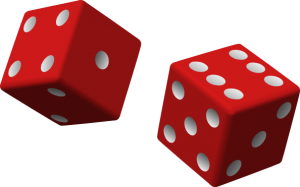
Over the last couple of years, I’ve been doing some thinking about the nature of games for the BBC. With gamification the new hot idea and with it the attempt to apply game mechanics to just about every industry both online and real world, it felt like a good time to revisit the core concept of a game.
A game is more than simply an activity with a score
There are countless definitions of ‘game’ by academics and social theorists including:
Dempsey’s “A game is a set of activities involving one or more players. It has goals, constraints and consequences. A game is rule-guided and artificial in some respects. Finally, a game involves some aspect of a contest or a trial of skill or ability, even if that contest is with oneself.“
And Avedon and Sutton-Smith’s suggestion from their book, The Study of Games: “At its most elementary level…we can define a game as an exercise of voluntary control systems in which there is an opposition between forces, confined by a procedure and rules in order to produce a disequilibrial outcome.”
In 2003, researchers Salen and Zimmerman compared 8 academic definitions in their book Rules of Play: Game Design Fundamentals and came up with:
“A game is a system in which players engage in an artificial conflict, defined by rules that result in a quantifiable outcome.”
Frankly, I don’t find any of those academic definitions particularly helpful.
There are grey areas in what constitutes a ‘game’ but we should be cautious about using the term too liberally. Many purists would balk at the suggestion that a multiple choice quiz is a game because the ‘play’ is so simplistic: there is but one rule (to answer questions correctly), one goal (to get all the answers right) but there is negligible ‘conflict’ (that is a sense of competition) or user control (the ability to make anything more than a binary decision).
So I’ve started to take a slightly different approach that focusses on qualities instead. For an activity to be a game, it has to include the majority of the following features:
- Agency – the ability of the user to control activity
- Engagement – some form of intrinsic motivation to participate
- Suspension of disbelief – the willing acceptance of a game world or layer
- Competition – some form of conflict, opposition or challenge
- Rules – some boundaries defining play
- Goals – a clear objective
- Progression – increasing levels of difficulty and the ability to fail
- Dramatic effect – some emotional attachment to what happens
- Rewards – some satisfying and conditional response for effort
Of course not all games will exhibit all these characteristics but I think it is a useful starting point when making a case.
What do you think?
 Play with Learning is a creative media service led by Carlton Reeve.
Play with Learning is a creative media service led by Carlton Reeve.
Flow, which is one the most vital aspects of creating an engaging game or gbl, is missing on that list. Flow is not engagement but per Csikszentmihalyi: “a state of heightened focus and immersion” – being in a liminal place of learning. It’s partly what makes the best games or learning experiences addictive.
Thanks for your comment, Ian. I had sort of lumped it all together in engagement but I agree, Flow is important enough to be there in its own right. Coincidentally my most recent post was about that very thing!
Thanks again for the comment.
Pingback: Plaything to Game | Play with Learning
Pingback: Art and Play | Play with Learning
You need to read THE GRASSHOPPER by Bernard Suits. It’s an incredibly wise and funny book and it provides an amazingly satisfying answer to your question here.
Thanks for you note. I’ve tried reading The Grasshopper before and found it pretty hard going. I have another go – thanks for the encouragement!
You need to read Wittgenstein’s Philosophical Investigations: there is nothing common to all games; rather there is a set of “family resemblences” that allow us to use the word as a useful tool.